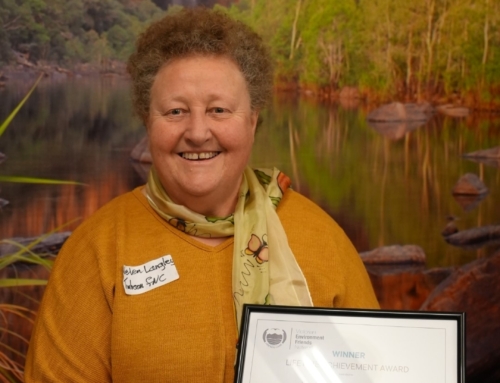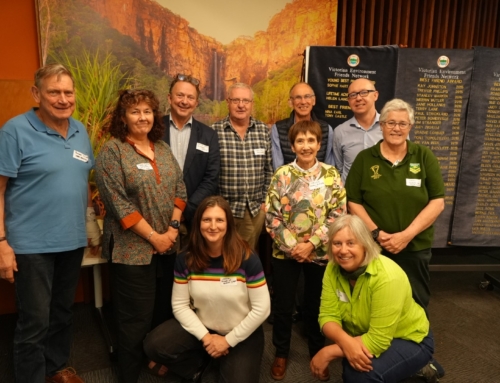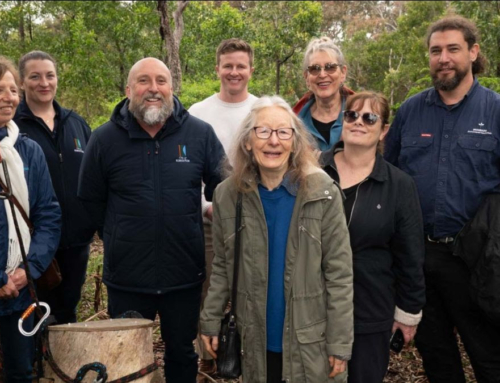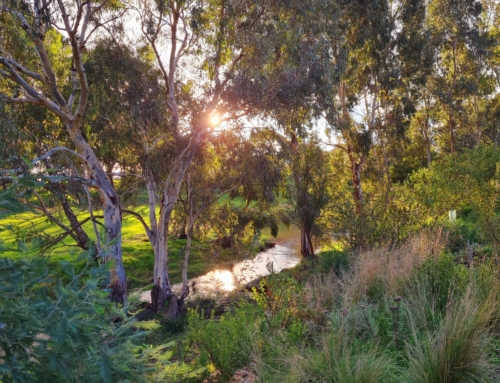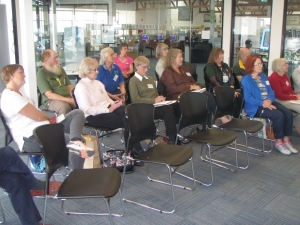
Friends Group Members at Geelong Workshop
Friends groups share ideas at South West forum
Over the past 8 months, VEFN has run a number of regional forums, where Friends groups come together to share ideas, raise issues and pool resources. The forums have been made possible by the state government’s Community Skills Development grants.
The most recent forum was held on 13th April at Belmont. It drew Friends groups from around Geelong, down the Bellarine Peninsula and as far as the Eastern Otways. As is often the case, groups share similar issues but tackle them in different ways, depending on the size of the group, the support they get from the land manager and the priorities of the local communities in which they operate.
With the encroaching urban fringe, several groups raised issues of poor compliance with regulations. These included increasing numbers of dogs in reserves and parks, reptiles being stolen, damage to infrastructure, including graffiti, and storm-water from new housing estates changing salinity levels in wet-lands causing them to become choked with reeds. Concern was expressed about decreasing bird populations, threats to small mammals, reptiles and rare plants.
On the other hand, the urban fringe creates opportunities to engage the local community in generating support for protecting green spaces and biodiversity. Several groups spoke about the events they held, ranging from Nature Play conducted through local kindergartens to annual koala counts and wildflower walks that attract people from further afield.
One of the themes to emerge was that you can’t do it all yourself. The value of establishing links and partnerships with other community groups was highlighted. Friends of Edwards Point spoke about their experience in making contact with the traditional owners of the area. The emotional connection they shared in being custodians of the land increased their awareness of providing information and education to the local community about the amazing biodiversity contained in the reserve.
The keynote speaker, Christine Connelly from Victoria University, spoke about the impact of urbanisation on decreasing levels of biodiversity. She described her own research into the movement of genetic material through the landscape, using eastern yellow robins as a case study. She emphasised the importance of Friends groups looking at their restoration efforts within the context of the broader landscape. Housing estates, roads and all the urban infrastructure can isolate populations of birds and animals causing in-breeding and making them susceptible to disease or other threats. Research into this area can provide specific details about the level of connectivity required for each species to thrive. For example, yellow robins need trees to be no more than 80 metres apart. There was discussion about the impact of climate change. Christine recommended looking at vicnature2050.org to see 10 things we can do to help nature adapt to a new climate.
Rod Lowther from the Geelong Field Naturalists Club led a discussion about the Geelong Nature Forum held on 16th March. This event was the first of its kind in Geelong and was organised in partnership with the City of Greater Geelong. The aim was to showcase the environment groups around Geelong and the many nature reserves and parks they care for. Although there were some things that could be improved for next year, the event was a success with more than 300 people attending. It highlighted the benefits of working together to raise awareness among decision-makers of the value community members place on the natural resources in their region.
VEFN is seeking to organise a number of regioanl workshops in the next few months. If you wuld like to have a workshop in your region contact the VEFN Convenor Paul Strickland direct at paul_strickland@hotmail.com


